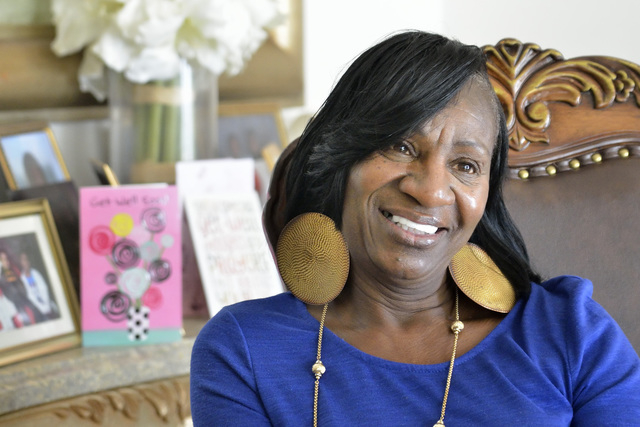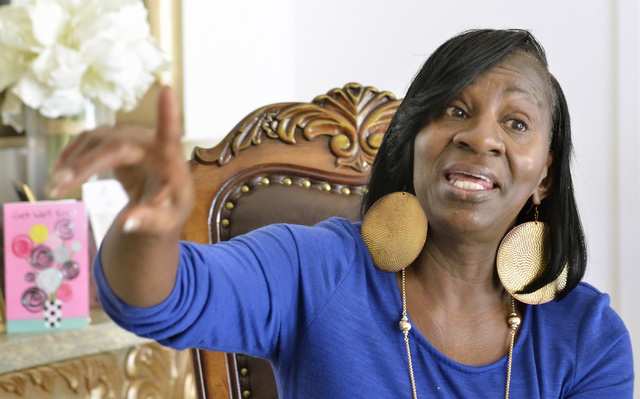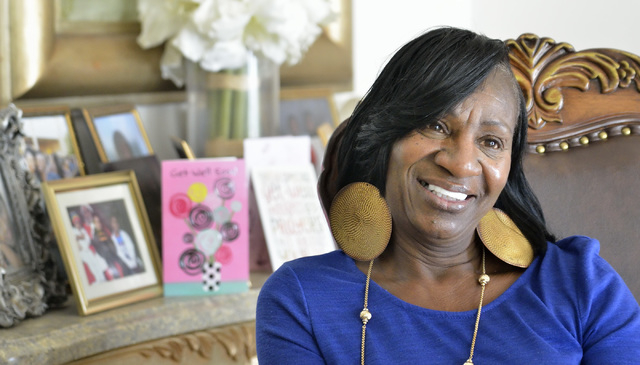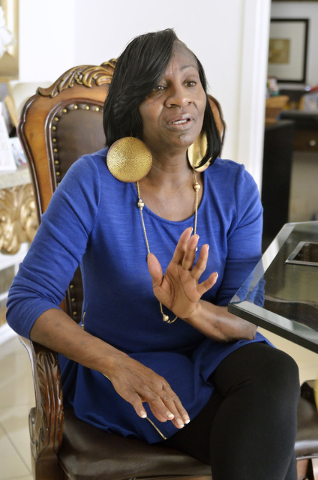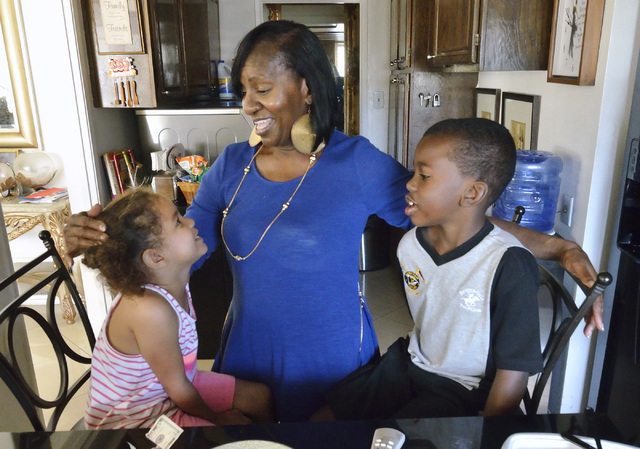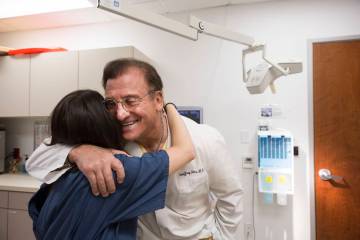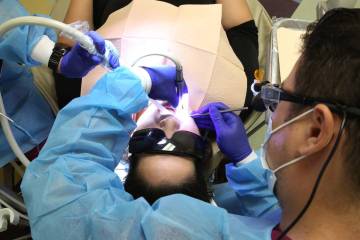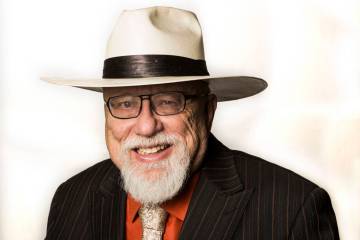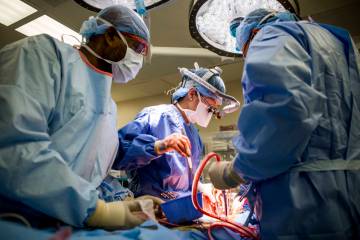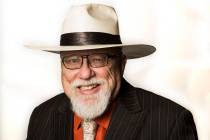Antibody drug leaves local woman free of cancer, casket nightmares
She sees the woman in the casket and screams.
Sleep does not come easy, Lorrine Rodgers says, when you see yourself dead.
“Sometimes when I think the cancer is going to kill me, I have bad dreams, seeing myself lying there in the coffin,” says the 59-year-old grandmother. “My husband has to wake me up and tell me I’m OK.”
It’s Sunday. Rodgers, a hotel housekeeper on the Strip, sits in her home near Meadows mall and briefly talks about the psychological toll of cancer treatment. She describes the frightening flights of madness that occur when she’s been told her cancer has returned, when her mind has no peace.
Then she steers the conversation away from sadness.
“I don’t like negativity,” she says, giving birth to a smile so wonderfully warm you believe she’s kissed the sunshine. “I’m cancer-free right now until they tell me otherwise. I’m going to be a shopaholic. I don’t like to fly so I don’t travel, but I do like to buy stuff for me, the house, and family. I don’t know what the future is.”
Rodgers’ cancer treatment illustrates the emotional roller coaster ride that patients frequently endure, says Dr. Fadi Braiteh, a researcher with Comprehensive Cancer Centers of Nevada.
Only a sadist would wish the ride on anyone.
Rodgers, who’s lost a sister, grandmother and an aunt to cancer, was diagnosed with Stage 3 breast cancer about five years ago, a finding that left her sleepless for months. “I thought I was next to die in my family,” she recalls as she holds her 4-year-old granddaughter, Tiara.
She also saw herself in the casket for the first time.
But a traditional yearlong treatment of surgery, chemotherapy and radiation — she made beds and cleaned rooms throughout all but three months of her treatment — made her upbeat. “They said they got it,” she says, shaking her head.
Less than a year later, however, the cancer came back. In her neck. Stage 4. The worst cancer you can have. Three months of chemotherapy didn’t get rid of it. She was told she had two choices: hospice or a clinical trial.
She saw herself in the casket for the second time.
Yet in 2014, just four months after she began participating in the first in-human trial of an antibody drug with the unwieldly code name MPDL3280A, her cancer disappeared.
“Gone like that,” she says. “All I had to do was get an IV treatment every 21 days, and it didn’t make me sick.”
Immunotherapy, just becoming part of the public consciousness, was working. A drug designed to break through a cancer tumor’s invisible shield did so, allowing the immune system to do its job. Her white blood cells attacked cancer cells.
Braiteh warned participants in the trial there could be intolerable side effects or the cancer could come back. Several months into the therapy, and with Rodgers still cancer-free, lesions broke out out on her body. She was taken off the drug.
Nine months later, in 2015, after the lesions disappeared, doctors found she had cancer again. Stage 4. Behind the same breast that had a lumpectomy.
She saw herself in the casket for the third time.
She was placed on the antibody drug again in October. Not only has immunotherapy left Rodgers cancer-free, it’s working for hundreds of patients in Nevada. “We’ve seen a dramatic transformation from Stage 4 cancer,” Braiteh says.
Even though Rodgers had her gallbladder removed last week, she’s happy.
“The dreams I have now are of buying all the clothes I can,” she says, laughing. “I’m not buying a casket.”
Paul Harasim’s column runs Sunday, Tuesday and Friday in the Nevada section and Thursday in the Life section. Contact him at pharasim@reviewjournal.com or 702-387-5273. Follow him on Twitter: @paulharasim



